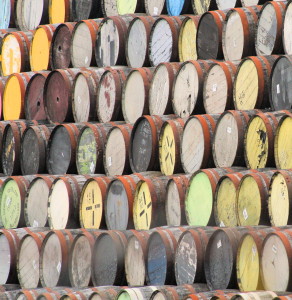In Whiskey Fungus Case, Sixth Circuit Says No Clean Air Act Preemption of State Law Nuisance Claims
In Whiskey Fungus Case, Sixth Circuit Says No Clean Air Act Preemption of State Law Nuisance Claims
- November 30, 2015
- By AngelaB
- Share this Article
 In early November, the Sixth Circuit soundly rejected a distillery’s claim that Kentucky common law nuisance claims are preempted by the federal Clean Air Act. Merrick v. Diageo Americas Supply, Inc., No. 14-6198 (November 2, 2015). The appeals court’s decision offers a bit of a refresher course on principles of federal preemption in Clean Air Act and Clean Water Act cases. In summary, the court held as follows:
In early November, the Sixth Circuit soundly rejected a distillery’s claim that Kentucky common law nuisance claims are preempted by the federal Clean Air Act. Merrick v. Diageo Americas Supply, Inc., No. 14-6198 (November 2, 2015). The appeals court’s decision offers a bit of a refresher course on principles of federal preemption in Clean Air Act and Clean Water Act cases. In summary, the court held as follows:
1) Under the Clean Air Act, states and political subdivisions retain the right to adopt or enforce their own regulations and requirements concerning air pollution, and individuals retain the right to seek any relief under state law—including state common law. [1]
2) While the Clean Air Act preserves claims brought by plaintiffs under the common law of the source state, i.e., the state in which the emissions sources are located, the Act does preempt claims based on the common law of a non-source state. [2] (The same applies under the Clean Water Act, by the way.)
3) Precedent interpreting the federal Clean Water Act is highly persuasive in Clean Air Act cases, “because many provisions in the Clean Water Act—including the savings clauses—were modeled on the Clean Air Act, so that the two acts are often in pari materia.” Generally speaking, says the Sixth Circuit, “what was true for the Clean Water Act holds true for the Clean Air Act.” [3]
“But wait,” you may say, “didn’t the U.S. Supreme Court recently rule that the Clean Air Act does preempt common law air pollution nuisance claims?” Yes, that is true. In AEP v. Connecticut, the Court held that the Clean Air Act displaces “any federal common law right to seek abatement” of CO2 emissions. [4] In the recent Merrick decision, the Sixth Circuit distinguished AEP on the grounds that it addressed only federal common law; in fact, none of the parties in AEP briefed the issue of preemption of state common law, and the Supreme Court explicitly declined to rule on that issue. [5]
Merrick involved ethanol emissions from a Louisville, Kentucky whiskey distillery. Neighboring property owners and lessees complained that ethanol emissions from the distillery caused the formation of “whiskey fungus” on their properties. The distillery’s ethanol emissions were regulated both under the Clean Air Act and under a federally-enforceable operating permit issued by the Louisville Metro Air Pollution Control District. The neighbors filed a class action complaint in federal district court, seeking damages for negligence, nuisance, and trespass as well as injunctive relief. The district court, like the Sixth Circuit, held that the state law common law tort claims were not preempted by the Clean Air Act.
Chris Walker practices environmental law with Van Kley & Walker in Dayton, Ohio. You can contact Chris at cwalker@vankleywalker.com or his colleague Jack Van Kley at jvankley@vankleywalker.com.
[Photo credit: John Haslam, Wikimedia Commons]
[1] Merrick v. Diageo Americas Supply, Inc., No. 14-6198 at 3-4, 7-8 (November 2, 2015)
[2] Id. at 9-10.
[4] American Electric Power Co. v. Connecticut, 131 S. Ctc. 2527, 2537 (2011) (emphasis added).
[5] Merrick, No. 14-6198 at 12, citing AEP, 131 S. Ct. at 2540.
- Post Categories
- Perspective
AngelaB
